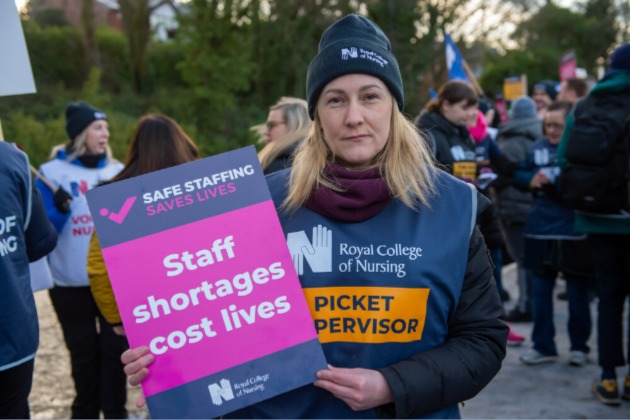Crisis, burnout and unrelenting pressure are not words those committed to caring want to see used as descriptors of their profession. But there is no hiding from the stark facts: many nursing staff are on the edge. Beset by unrelenting demand, stress and the grinding effects of low pay, significant numbers are struggling and turning away.
The RCN Employment Survey 2017, produced by the independent Institute for Employment Studies (IES), is not an easy read. Based on the responses of 7,720 members, it opens with a quote from a nurse planning to leave and work in a supermarket instead. “The pay, terms and conditions … eventually wear you down,” the nurse says. “This is not what I came into nursing for.”
That respondent is not unusual. Most said they had worked extra hours, borrowed money or taken an additional job in the past year to make ends meet. About 60% reported financial struggles. Paying for basics such as food, gas and electricity is a challenge for many.

The overall impact is devastating. As the IES report puts it: “These are costs which many nursing staff judge to be too high, not just in terms of inadequate pay, increasing workload pressures and declining levels of their own health, but also in terms of compromised levels of patient care – the very thing that motivated them to take up nursing in the first place.”
Many of the survey’s themes are familiar and have been articulated repeatedly by the RCN. But problems are worsening. “Presenteeism”, for example, is on the rise. Almost half – 48% – of nursing staff say that at least twice in the past year they have gone to work when feeling unwell. In 2013, the figure was 41%. And 63% of staff now say they face too much pressure at work compared to 53% six years ago.
This is not what I came into nursing for
The backdrop to these mounting financial and wellbeing problems is, for some, workplace abuse. More than a quarter of respondents had been physically abused by patients or relatives in the previous 12 months. Equally worrying is the prevalence of bullying by colleagues – one in three staff say they have been victims.
That's why the RCN's Healthy Workplace, Healthy You campaign is so important. It supports employers and RCN representatives to work in partnership to improve working conditions for staff. It also supports nursing professionals to lead healthy lifestyles so they can maintain both physical and mental wellbeing.
Changing the situation
The results of the employment survey are used to inform the RCN’s evidence to the NHS Pay Review Body. This is submitted in December. The College is calling for a pay award in line with RPI inflation plus £800, to begin to make up for the years of lost earnings.








